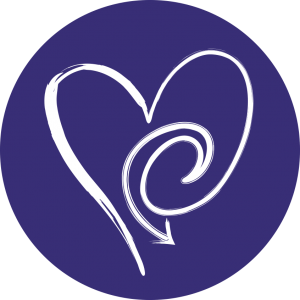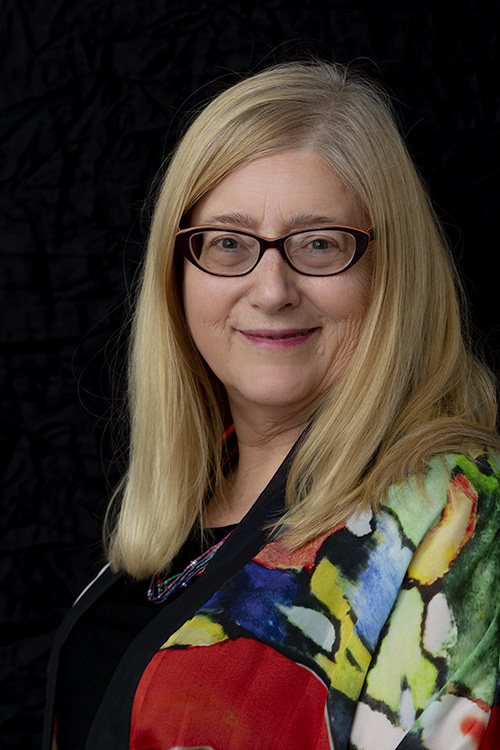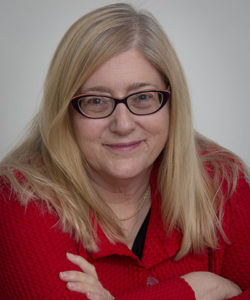Different Boats – Same Ocean
I recently gave a sermon at my UU church and it struck me afterwards how aligned it was with my Manifesto – with the exception that I have, since, moved on to grey hair. Of course, it should be aligned. The same experiences and life events shaped me and my alter ego Stella in identical ways, as you would expect. The title I chose ‘Different Boats – Same Ocean’ is an allusion to the belief that Americans have that the tide raises all boats equally. And then along came 2020 to – perhaps – show us that some boats leak, some are above the tide line and never get to float, and so on. You get my drift.
And so I want to talk with you about the mix of joy and woe that is our life. And I want to talk with you about denial: How humans choose not to believe in the struggles of others, and how we outgrow denial as our spirits grow.
I want to talk with you about the pandemic: How it has opened our eyes to our mutual mortality, so that we can better see the reality of the oppression of others.
And I want to talk with you about the duty of imperfect and broken humans to take care of ourselves, our bodies, so that we can keep bearing witness to the demands of justice.
In the midst of industrialization, when the “dark Satanic mills” were overtaking Northern England, the poet William Blake wrote:
Joy and woe are woven fine,
A clothing for the soul divine…
Life is indeed a mix of joy and woe. But it is easy to wallow in our own woes, and difficult to see the struggles of others.
In February 1981, I gave birth to twin sons, two months before they were due. How joyful to become a mother of sons, and how difficult that they spent their first two months in intensive care. Although my sons are identical, their development took different paths. One of my baby boys learned to sit up, and stand, and walk. My other son moved differently. He turned out to have cerebral palsy, and to this day he rides a power wheelchair. But my first response when he was a baby was to deny what I saw. He’ll grow out of it, I thought. They were born early—he’ll catch up.
My next response was to wonder why the universe was inconveniencing me. Not my son, but me. And I still fell into those feelings at times over the years, as I dressed my son each day, lifted him into his wheelchair, and drove him to elementary school, then middle school, then high school. I had those feelings even though my son was the person growing up with the great inconvenience of having a disability. And even though I had a husband and an au pair, and had the means to buy a wheelchair accessible house and a wheelchair lift van.
When my son turned seven, he began playing on the Berkeley power wheelchair soccer team. At practices I met another mother of twins. Her identical sons both played wheelchair sports because they both had cerebral palsy. She was a single mom who rented a small apartment and their family relied on public transit. Yet there they were at every practice. When the team travelled to Arizona for a national tournament, there they were. When the team travelled to Birmingham for an international championship, there they were. It took meeting this family to jolt me out of self-pity and into the beginnings of empathy for other parents and for people with disabilities who spend their lives fighting for access to buildings and institutions. Almost forty years have passed since my sons were born and I still work on my ableism.
When I stopped making my son’s disability all about me, I began to read a lot. I sat at the UCSF Medical School Library and read everything I could about cerebral palsy. When my son was young, lots of school buildings including the Berkeley High Library only had steps not ramps. I helped organize a parents’ group that went to the School Board and petitioned for better access. They kept promising they would help our kids – as soon as they could fit it into the budget. Finally, somebody slipped us an old newspaper article about another parents’ group that had gotten that same run-around ten years before. That was when we sued the schools and won – although some parents of able-bodied kids were angry at us for making a fuss.
But notice how I started with denial. Humans use denial as a way of coping with our losses, with our mortality, so we are not overwhelmed by suffering. The problem is, denial robs us of empathy. Denial makes other people less real to us. And I’ve learned that overcoming my denial about one kind of struggle does not mean I understand other forms of oppression.
Working on my ableism didn’t mean I was awakened to my own homophobia. In my forties, after my divorce, I began a relationship with a woman. I resented that we got flack for holding hands in restaurants; it took time to get over myself and realize other people were losing jobs and homes and custody of their children because of who they loved. And then working on my homophobia didn’t mean I was awakened to my own ageism. In my sixties I resented that it grew harder to get a technical writing job, but I was happy to switch over to writing whatever I wanted, for fun. I had to check myself and realize that not every older person has the luxury of pursuing their dreams instead of a job. Each challenge has required self-examination and self-education before I could begin to be an advocate.
Why wasn’t I truly awake to any of these challenges before I experienced them?
Because I didn’t have to be.
Because it’s harder to see the privilege I enjoy than the privilege I’ve lost.
Because denial is easy and seductive, and to see another person’s struggle is hard and uncomfortable.
I made the right progressive noises but as long as ableism or homophobia or ageism did not affect me, as long as it was something that happened to “them,” I was not fired up. It was abstract, not real.
The African American Lesbian poet Audre Lorde wrote, “To acknowledge privilege is the first step in making it available for wider use. Each of us is blessed in some particular way, whether we recognize our blessings or not.”
But we cannot learn every form of struggle through personal experience. If we are to grow beyond denial, at some point we must get past our daily lives and learn what we can about what others face.
To help us recognize each other’s struggles, along came the year 2020, the year when the same crisis is happening to everyone. The pandemic split open our denial because it put our mutual mortality right in our faces. All of our faces.
As the year began, the corona virus seemed so remote, a disease on the other side of the planet. It was easy to live in denial—until one day it wasn’t. You probably remember the day you locked down. For me it was March 6, the day the first case was diagnosed in my town. At noon I was crammed into a cafe for 45 minutes with a crowd of people waiting for take-out, wondering who in that room might infect the rest of us, wondering whether a great bacon sandwich was worth dying for. I went home and put sticky notes on the bottoms of all my favorite possessions with the names of which of my children should get what when I died. Suddenly I remembered I was mortal—and so was everybody else.
Audre Lorde wrote after her second cancer diagnosis: “As a living creature I am part of two kinds of forces–growth and decay, sprouting and withering, living and dying, and at any given moment in our lives, each one of us is actively located somewhere along a continuum between those two forces.” Suddenly, because of the pandemic, we all had to reassess where we were on that continuum.
Two months after I labeled my prized possessions, I read an article about a family in Orlando. Both parents lost their jobs when the pandemic closed Disney World. They were unable to access the overwhelmed unemployment system and so they lost their home. The parents and their two children were living in their car. They had no prized possessions to label in case of their demise. I’ve never been homeless but that family is real to me. I can see them when I go to sleep at night: the children coping the best they can, the parents tamping down their fears and being brave for their children. This pandemic is happening to everyone in the world. We are in different boats but on the same ocean, connected in ways that were invisible until COVID-19.
Audre Lorde said: “I know that my people cannot possibly profit from the oppression of any other group which seeks the right to peaceful existence. Rather, we diminish ourselves by denying to others what we have shed blood to obtain for our children. And those children need to learn that they do not have to become like each other in order to work together for a future they will all share.”
I believe that awakening to our mutual peril is why so many people were moved to action by the terrible death of George Floyd. I believe that is why so many brave men and women faced down the dual perils of brutality and pandemic to call for change, for reform, for a recognition that justice is due for all of us. All of us. Whether or not we have the experience of oppression that African Americans face, we know we cannot let oppression of our fellow humans stand.
I believe this difficult time has become a crucible of spiritual growth. Many people right now are taking the risk of accepting the reality of others’ struggles. I saw a photo of a sign carried by a white woman at a recent protest. Her sign said: “I’m sorry I’m late. I had a lot to learn.”
And there is always more to learn.
I am sorry I was late to disability activism. I’m sorry I was late to Pride. I’m sorry I was late to anti-ageism. And I’m sorry I am late to anti-racism. I am still at the reading and learning stage. But from taking up other causes I know this:
First, I have benefitted from the exclusion of others. I have enjoyed unearned advantages that were invisible to me. In a country where the average white family has ten times the wealth of the average family of color, it’s no coincidence that my son had a wheelchair lift van while his twin teammates who were African American did not. In a country where the average white family has twice the income of the average family of color, it’s no coincidence that my grandchildren sleep in beds at night while that African American family in Orlando sleeps in a car.
Second, it is powerful to witness and acknowledge the struggle of others. Not my feelings about their struggle, but the struggle itself.
Third, we are much more powerful together. Even those of us who have taken the easy way for too long can add our numbers to that power.
Fourth, the oppression of any is the oppression of all.
Fifth, blessings continue, during a pandemic, during a time of great injustice, and all are worthy of those blessings.
All humans are imperfect. We are all late to grasp the struggles faced by some group of our fellow humans. But our imperfection, our belated recognition of others’ suffering, and our continued need to learn and grow, do not take away from the contribution we can make together. Our numbers are powerful.
I want each and every one of the brave people protesting racism and oppression to be healthy and strong in November. They are essential and so are each of us. Our first job in this time of pandemic must be to take care of ourselves. We are in this for the long haul. COVID-19 and racism are not going away tomorrow, so we must protect ourselves from COVID-19 even as we learn to fight racism.
Talking about her cancer, Audre Lorde wrote, “Caring for myself is not self-indulgence. It is self-preservation, and that is an act of political warfare.” The same could be said for each of us in the time of corona virus: We have a duty to take care of ourselves, because our survival to support change is a political act. And we have a duty to remember this moment when the pandemic broke through our denial, and to maintain empathy and activism.
Denial is a limited form of self-care. Far better to hold the dualities of blessings and brokenness, of our own failings and our capacity for good, of the reality that the world will break your heart and everyone else’s even while it fills you with joy. Far better to recognize how we have fallen short and then live to do better another day.
What we each do now and in the months and years to come is important. Let us bear witness to the requirements of justice all humans, including ourselves and everyone else. Let us not rest until each person has a worthy craft on future seas.



8 Responses
Beautiful and moving and powerful and true.
Thank you, Mirinda!
Stella, this is a life through a profound looking-glass. Our will and faith to survive, in the most difficult times, is not colored by race, religion, or gender. We are here, bound by humanity to help each other. I so enjoyed the flow of your words, as they have given me much to consider. I look forward to reading more.
Cheryl, your words are moving and mean so much. Thank you, and many blessings, Stella.
Dear Stella,
Thank you for publishing your beautiful sermon on breaking through denial. I will be sharing it with friends if that’s ok?
Hello Steevie – Thanks so much! I would be very glad for you to share with friends! All the best, Stella.
Well written and self reflective that gave me an idea of who you are. Loved it. Im not one to read long articles etc and when I write it’s short stories. This was worth ready. Looking forward to reading more. Have a safe, wonderful day, Stella!
Thanks so much, Imogene! I appreciate the encouragement. And best wishes to you on your writing! Take care – Stella.